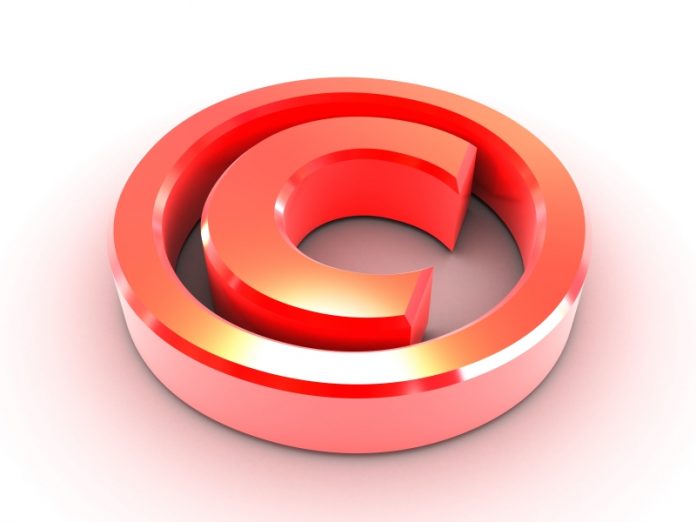This article is written by Chandana Pradeep, from the School of Law, University of Petroleum and Energy Studies, Dehradun. This article analyzes whether terms and conditions are subjected to copyright.
Table of Contents
Introduction
Copyright law is a law that protects the individual work of an individual so that it cannot be reproduced in any form by any other individual. The Copyright Act of 1957 is applicable in India for India, which has been evolving with time to include different aspects that can be subject to copyright.
This article discusses if terms and conditions can be subject to copyright. Terms and conditions are the documents that are supposed to be agreed on by an individual before entering a website, mobile application, or any other platform which is available online. This is essentially an agreement between the owner of a particular website or online platform with the individual who wishes to access the same. It also enlists what is considered as misbehaviour or guidelines for not abusing the particular website.
Development of Copyright in India
In India, copyright was developed way back from the British rule where the Indian Copyright Act, 1847 was enacted and then the Copyright Act, 1911 came into the place where all the British colonies started following this place including India, following which there were further modifications and the Copyright Act, 1914 came into existence which was finally replaced by the existing Act of the Copyright Act, 1957.
What can be protected by copyrights?
According to section 13 of the Act, the following can be copyrighted. These copyrightable items are called “works”.
To keep up with the developing world, copyrights now extend to items such as the information technology industry too in India which covers satellite and digital technology among others.
The following can be copyrighted:
Original Literary Work
This is the final product of what the human mind envisages, which may be in the form of verbal, numerical, or any other method that can be written down which has been developed and formulated due to a particular skill that a person has, labour or a specific point of view. The Copyright Act includes a particular list where it lists out what exactly literal work is, these are inclusive of tablets, computer databases, etc.
Original Dramatic Work
Dramatic work according to the Act is any piece of work that has recitation, choreography, or entertainment. There is no particular exhaustive list for what a dramatic work is and what all falls in its ambit, therefore any piece of work that comes within the general meaning of what a dramatic work is may fall into it.
Original Music Work
According to the Copyright Act, 1957, the original music work includes any work that has music but should not be any words or action that has to be sung as music, but before the music can be copyrighted, it has to be original.
Original Artistic Work
According to the Act, artistic work is any painting, drawing, sculpture of any work which shows artistic qualities. Architecture and craftsmanship are also included in the definition of artistic work, provided it has to be original.
Cinematographic Work
These include any work which is a visual or a sound recording where the cinematographer forms these recordings into a cinematographic process.
Sound Recording
As per this Act, sound recordings are when sounds are recording irrespective of the medium in which they are recorded.
What cannot be protected by copyrights?
Ideas
Particular ideas, methods, etc can not be subject to copyright. Thee includes any form of an algorithm, scientific discoveries that are formulated and developed.
Known Information
Information that is common and known to all cannot be subject to copyright, as it is not original or new information that has been sought. These also include any sort of information that has no particular ownership, examples of the same include height, weight taken from any sort of public information are all examples of known information that cannot be copyrighted.
Fashion
Though copyright protects things such as architectural designs, fashion is not subject to copyright as these are not “useful articles”, however, a specific pattern of fabric can be copyrighted but not the dress as a whole.
Short phrases
Short phrases that include slogans etc. which are necessary for the business or the company which is being run, are not subject to copyright but can be protected by trademarks.
Rights of a copyright holder
There are two rights given to the individual whose work is original and their works are copyrighted under section 14, these rights are:
Economic Rights
In the case of original literary, musical, and dramatic work:
- Right to reproduce;
- Right to issue copies;
- Right to perform in public;
- Right to make cinematography and sound recording;
- Right to make any translation;
- Right to adaptation; and
- Right to do any other activities related to the translation or adaptation.
In the case of computer program work:
- Right to do any act aforesaid mentioned; and
- Right to sell, rent, offer for sale of the copyrighted work.
In the case of artistic work:
- Right to reproduce;
- Right to communicate;
- Right to issue copies;
- Right to make any cinematography and sound recording;
- Right to make an adaptation; and
- Right to do any other activities related to the translation or adaptation.
In case of a cinematograph film work:
- Right to sell, rent, offer for sale of the copyrighted work; and
- Right to communicate.
In the case of a sound recording work:
- Right to communicate;
- Right to issue copies; and
- Right to sell, rent, offer for sale of the copyrighted work.
Moral Rights
These rights are based on ethics and are supported by Article 6 of the Berne Convention. Section 57 of the Copyright Act, 1957 covers two moral rights which are the right to paternity and the right to integrity.
Registration of Copyright
Registration of a copyright is not absolutely necessary in India, as even if it is done it is just for documentation or record purposes. The registration does not create or confer any new right and is not a prerequisite for initiating action against infringement. There is no particular time limit within which copyright has to be sought, but once the copyright is issued, but for the registration to be issued it would take almost a year and a half.
How long does copyright exist?
The validity of how long copyright differs upon the country. In India, usually, the copyright exists for 60 years. In the case where its original literary work, music, etc, the terms of copyright is counted from the year after which the author has passed away. Copyrights are only protected for a limited duration and not for perpetuity.
What all are contained in terms and conditions?
- How the application is to be used along with what behaviour is not accepted.
- Limitation or exclusion of the liability.
- Protection of intellectual property rights.
- Process of dispute resolution.
- Terms of payment and service.
- Indemnities.
- Warranties.
- Disclaimers.
Can terms and conditions be copyrighted?
Terms and conditions are subject to the nature of the business which the individual seeks to run. Terms and conditions can fall under copyright and if these are reproduced by anyone else, then it is an infringement of copyright.
Romme vs Van Dale (1991)
The main question in this case of Romme v. Van Dale was whether the terms and conditions were subject to be the intellectual property of that individual. In this case, the terms and conditions were written down by the claimant but the defendant had already performed these works and was aware of what was written by the claimant.
For this, the court checked whether these points written down were subject to copyright or not, and for this, it based its finding on a precedent which said that a collection or selection of in itself non-protected elements can be a copyright-protected work if that work carries the personal mark of the maker.
The court held that that however, does not take away the fact that the maker has made personal choices in his selection of words, sentence structure, the sequence of topics handled and layout and finally held that since all the information that was written down was an original manner and the creation of that individual and hence could be subject to copyright.
Even if not all of the terms and conditions are reproduced and copied, it does not matter as it is still considered to be an infringement. Infringing the terms and conditions means infringing the right to make the information public and to reproduce as well as the rights relating to them relating to the personality of the maker of the terms and conditions are violated. Hence if these two are infringed, then the original maker of the terms and conditions has a right to file a complaint in the court for copyright infringement.
Reasons why terms and conditions should not be copied
Infringement
Copying other terms and conditions from different websites is a copyright infringement and is illegal. As it is blatantly being copied off from some other individual’s website.
Affects Business
All terms and conditions vary according to the type of business. Terms and conditions, privacy policy and the disclaimer is what form a type of agreement between a prospective customer and the business. The terms and conditions determine how interested the customer will be in purchasing any commodity which can be availed through this website. Also, another situation which can arise is when there are complications or points of difference which arise during the business, the first point of reference for the customers will always be the terms and conditions for the business and if that is copied, then the chances are very less for the business to save itself.
Fines
Some fines are issued to the websites that copy materials from other websites etc. An example where this is done is in Australia by the Australian Competition and Consumer Commission, where there is a checking done for all the e-commerce sites and a fine is levied on the ones which are non-compliant. There have been cases which have been found where the terms and conditions have been compiled, not suiting the business which is run, etc.
Legislating bodies for copyright protection
Indian Scenario
The Copyright Act, 1947 is the Act that governs copyrights in India. There are civil remedies as well as criminal remedies that are available for infringement of copyright. This infringement can be taken as a cognizable offence with imprisonment from 3 months up to years along with a fine ranging from 20,000 to two lakhs depending upon the severity.
The police can also file a First Information Report (FIR), can arrest the accused as well as search for the material; which has been infringed to produce it before the court. There are certain rights that are given to the copyright owners and if their rights are infringed in any manner, they can approach the court.
Section 51 of the Act states that using any copyrighted work without the permission of a copyright owner is an infringement of copyright law and also the following instances can be considered as an infringement of copyright. somebody who does the infringement of copyright is solely held answerable for his misconduct like-
- Performing publicly with no consent of the owner.
- Using copyrighted work for any quiet business brings financial benefit.
- Distributing for the aim of trade or import.
- Reproduction of considerable a part of copyrighted ad any material form.
- Circulating among the unauthorized persons.
- Adoption or translation of copyright work with no permission.
- Resale or renting of copyrighted material to others.
Global Scenario
In the international scenario, all of the copyright laws are similar in nature due to the Berne Convention, where copyright protection is given to all members who are part of this convention which is more than 100 members. This protection must last for at least the life of the author plus 50 years and must be automatic without the need for the author to take any legal action to preserve copyright.
For the authors in the United States to have protection the Berne Convention as well as the GATT Treaty helps them in doing so. In the case of the European Union (EU), there have been various attempts which were made, so that the laws in the European Union also go hand in hand with the global scenario, one such result that attempted is the 2001 Copyright Directive in the Information Society.
Conclusion
Copyright is an important law that is used to protect work that is original so that there cannot be any reproduction of the same by any other individual. The Act has kept on evolving with time as the development has been taking place. Terms and conditions are one of the new additions to copyrights, as it is a work that is origins and created by the individual and can be subject to copyright and if it has been infringed, the individual can approach the court for a remedy.
Terms and conditions have great importance in running any business and are absolutely necessary that it is according to the business that is to be run and not copied from any other website, there are strict checking which is being done by different Boards all over the world so as to ensure that copying of terms and conditions among many others are not done so that the consumers can be protected as well.
References
- https://www.mondaq.com/india/licensing-syndication/406982/copyright-law-in-india
- http://www.legalservicesindia.com/law/article/990/7/What-cannot-be-copyrighted-in-India
- https://blog.ipleaders.in/an-overview-of-the-copyright-act-1957/
- https://cis-india.org/internet-governance/blog/privacy/copyright-enforcement
- https://www.arnold-siedsma.com/news/archief/2016/are-terms-and-conditions-protected-by-copyright
- https://www.newmediarights.org/business_models/artist/ii_what_can_and_can%E2%80%99t_be_copyrighted
- https://www.kashishipr.com/blog/things-that-cannot-be-copyrighted/
- https://www.wipo.int/copyright/en/faq_copyright.html
LawSikho has created a telegram group for exchanging legal knowledge, referrals and various opportunities. You can click on this link and join:
 Serato DJ Crack 2025Serato DJ PRO Crack
Serato DJ Crack 2025Serato DJ PRO Crack











 Allow notifications
Allow notifications


